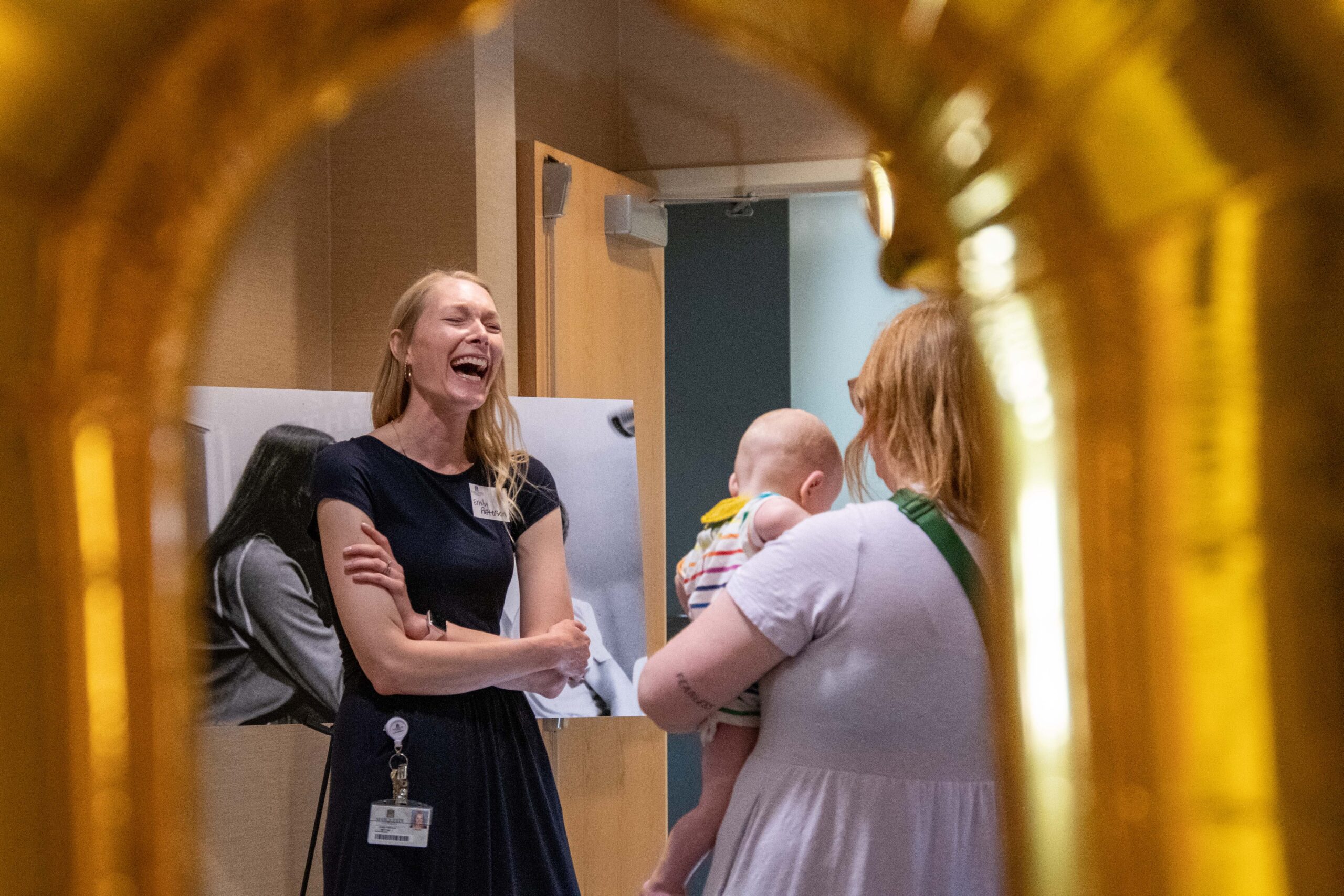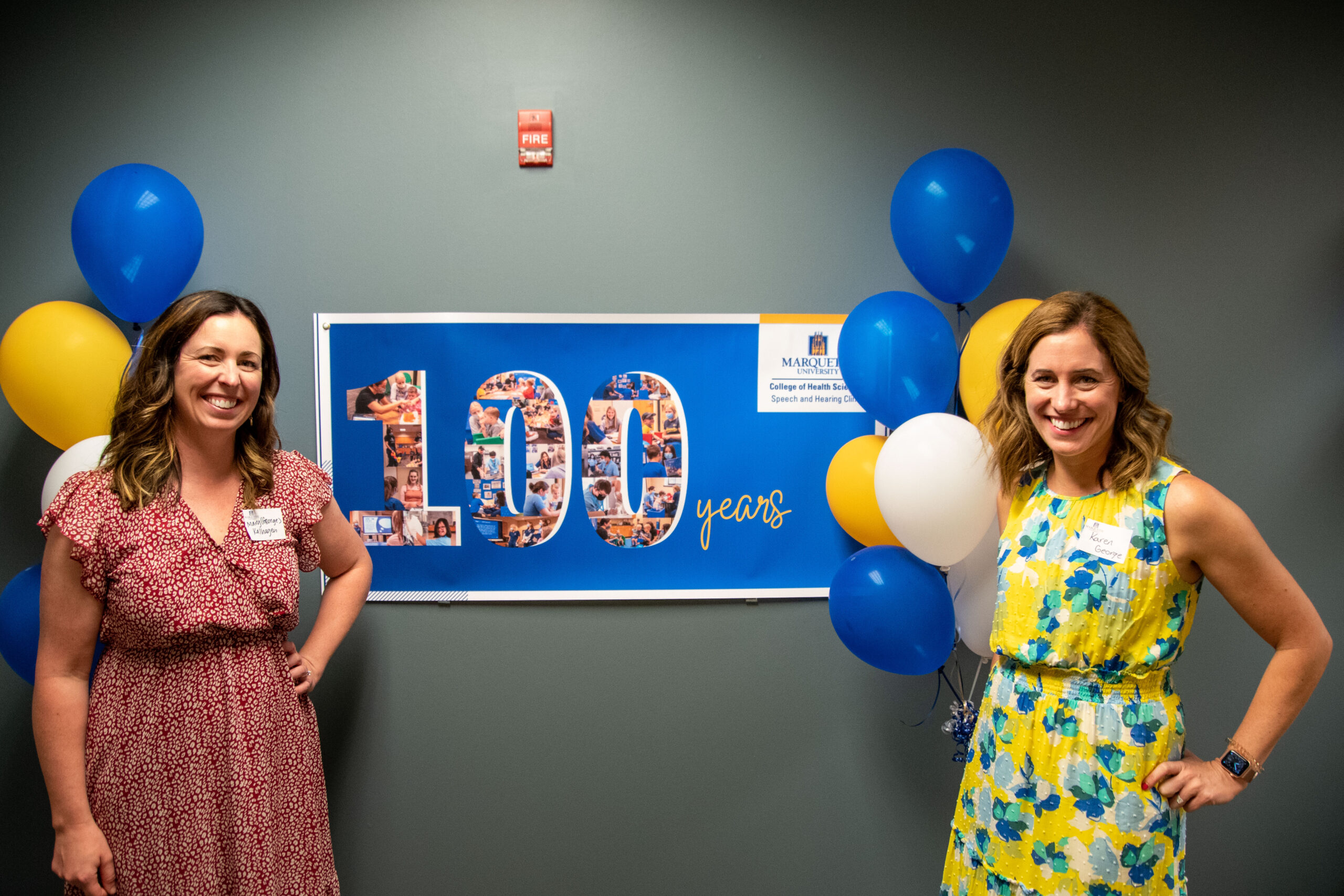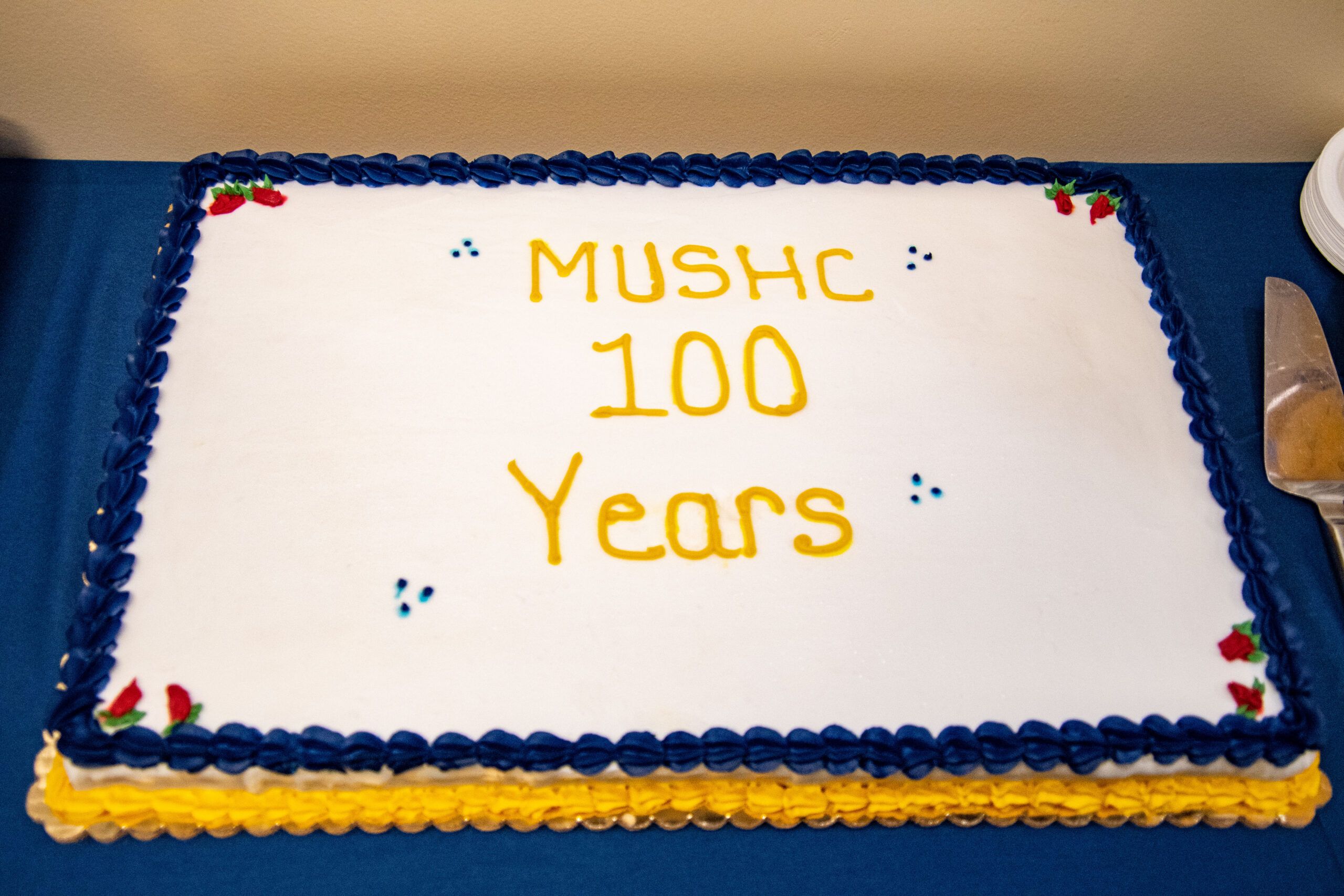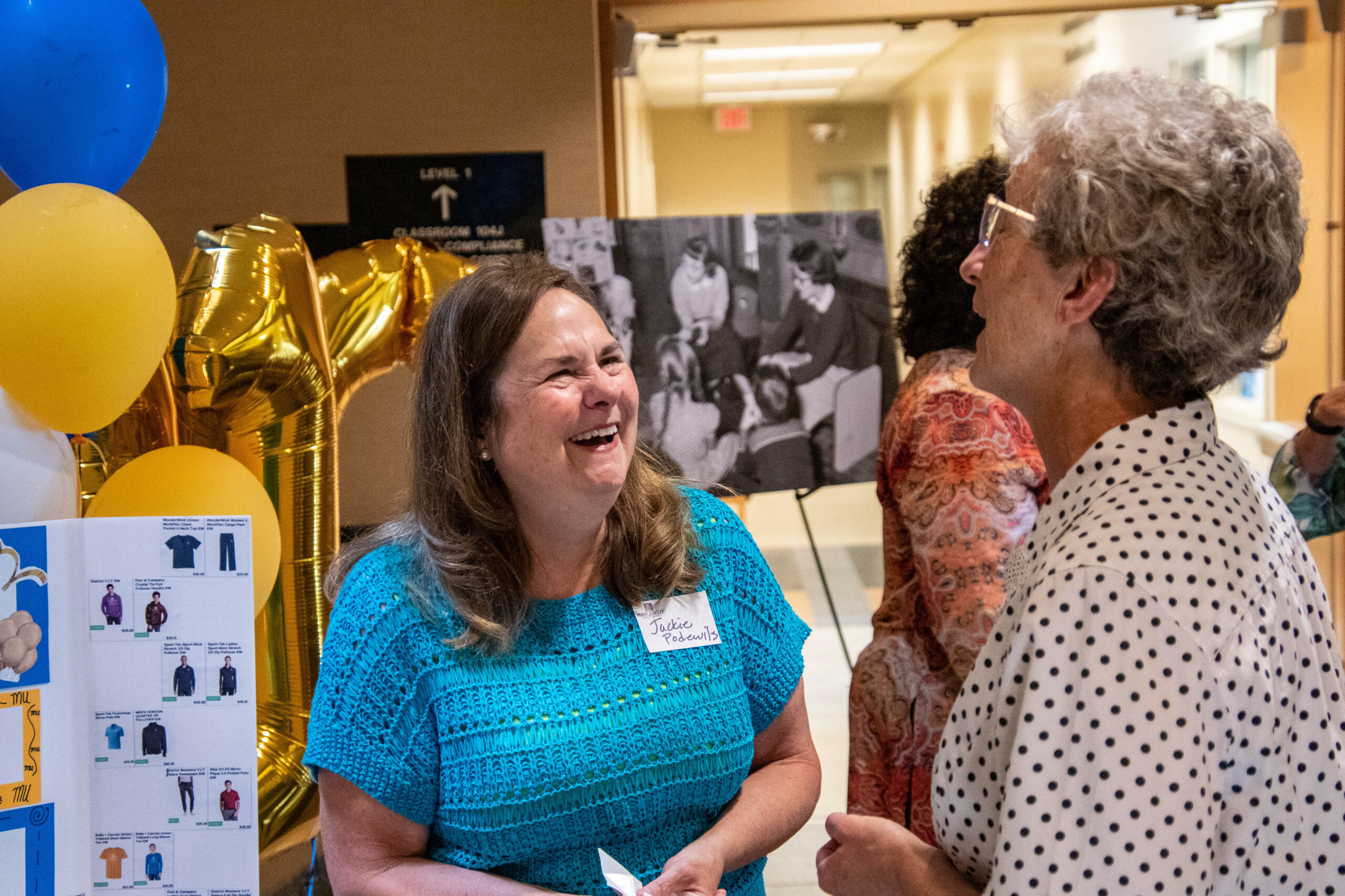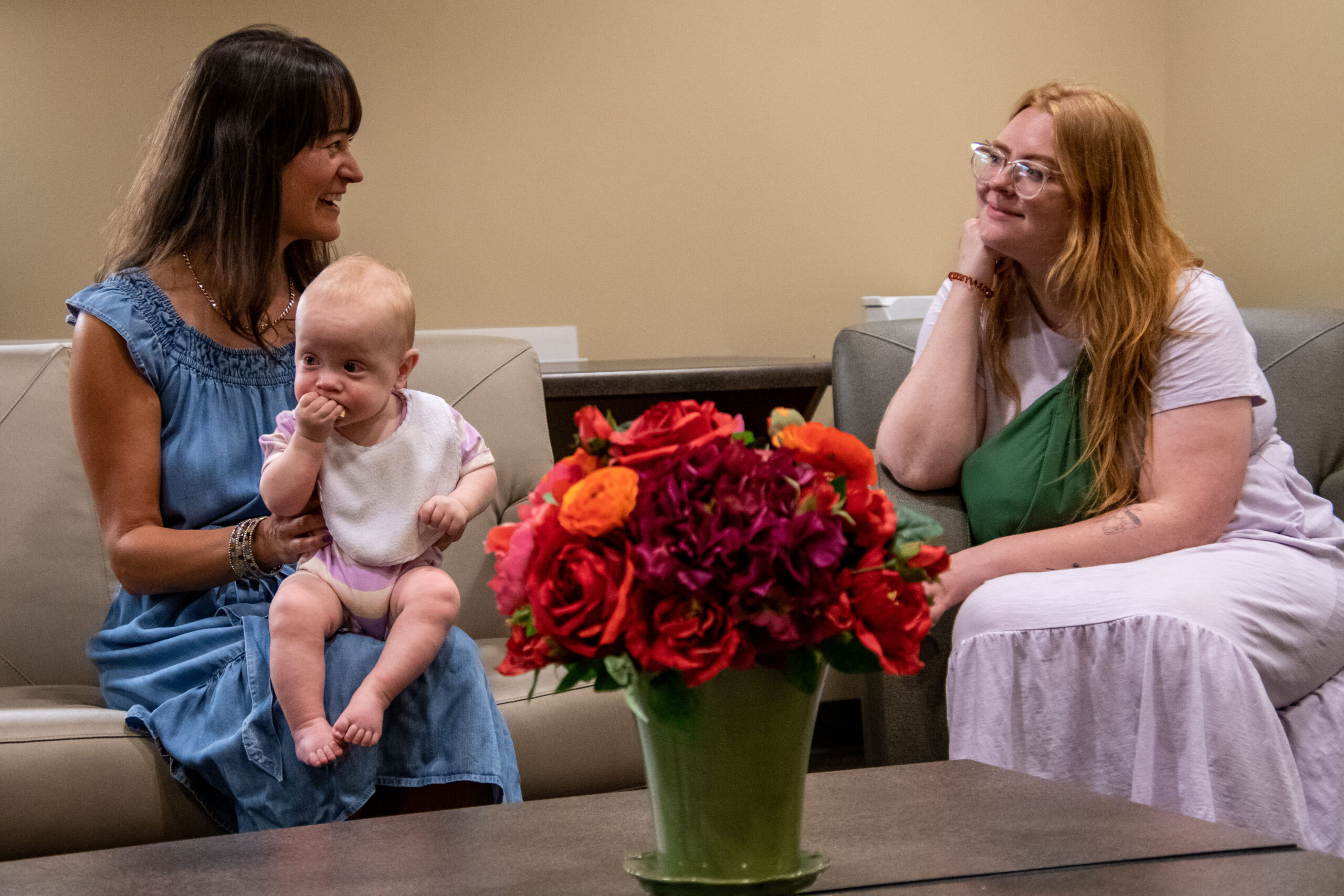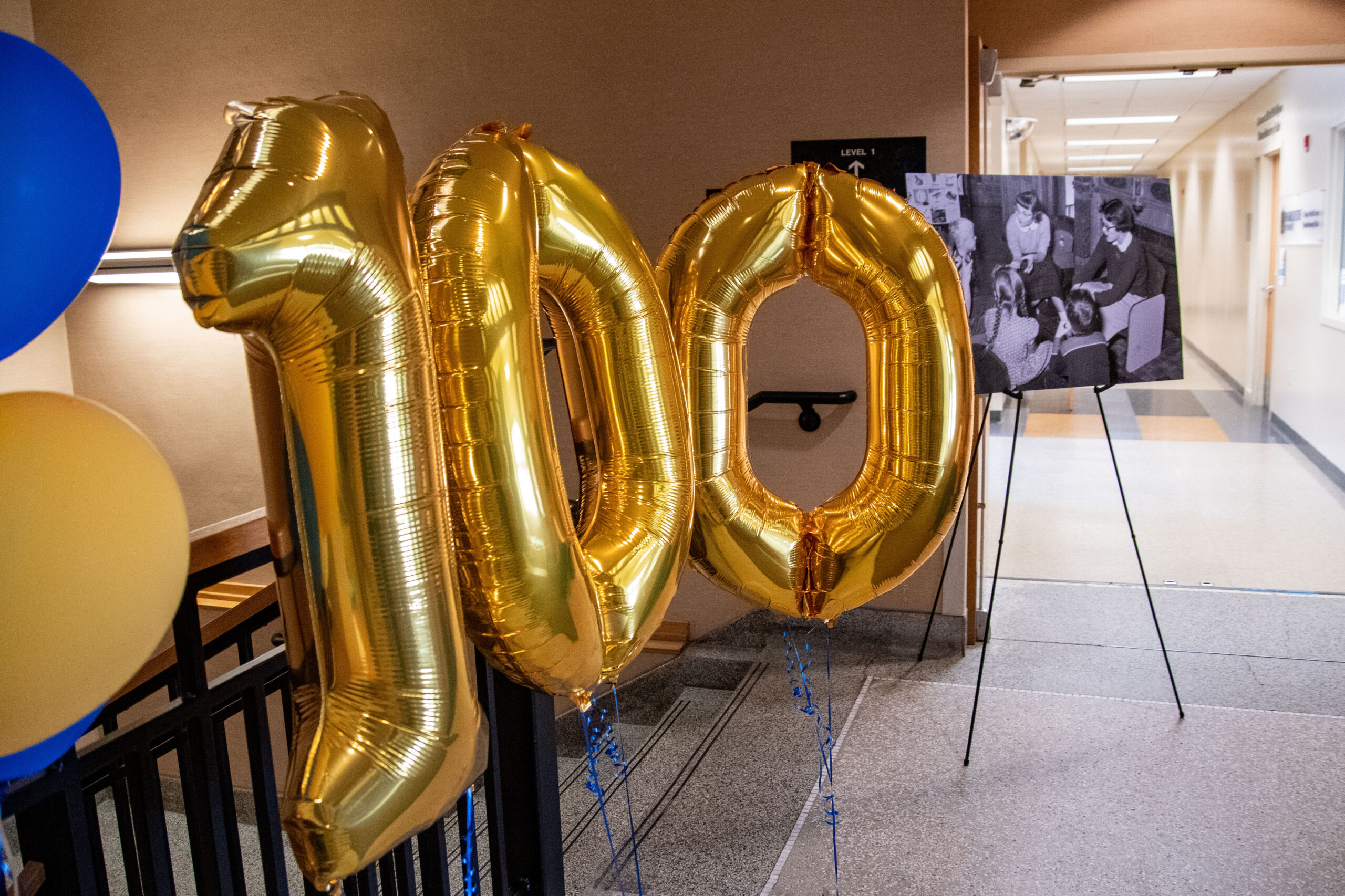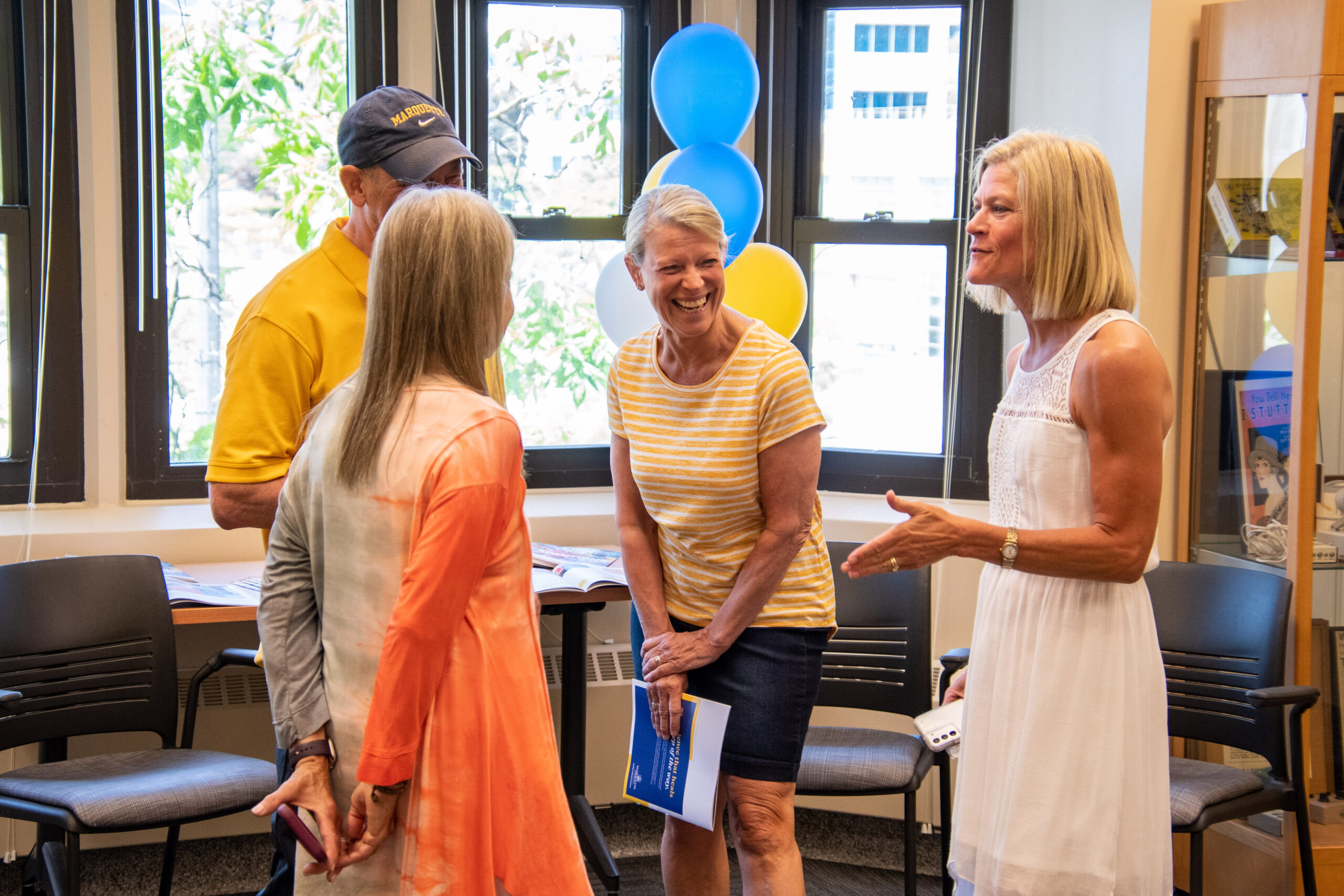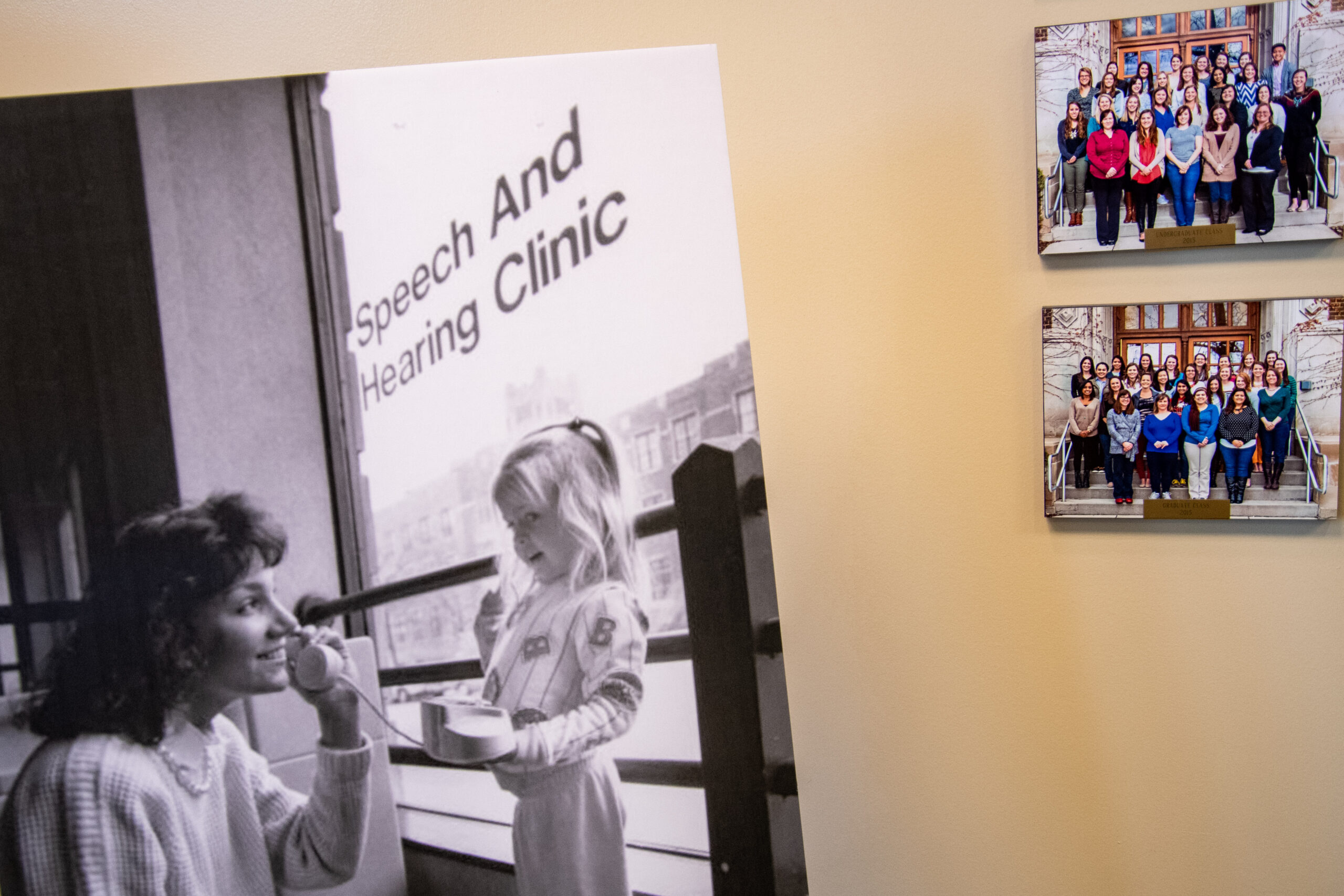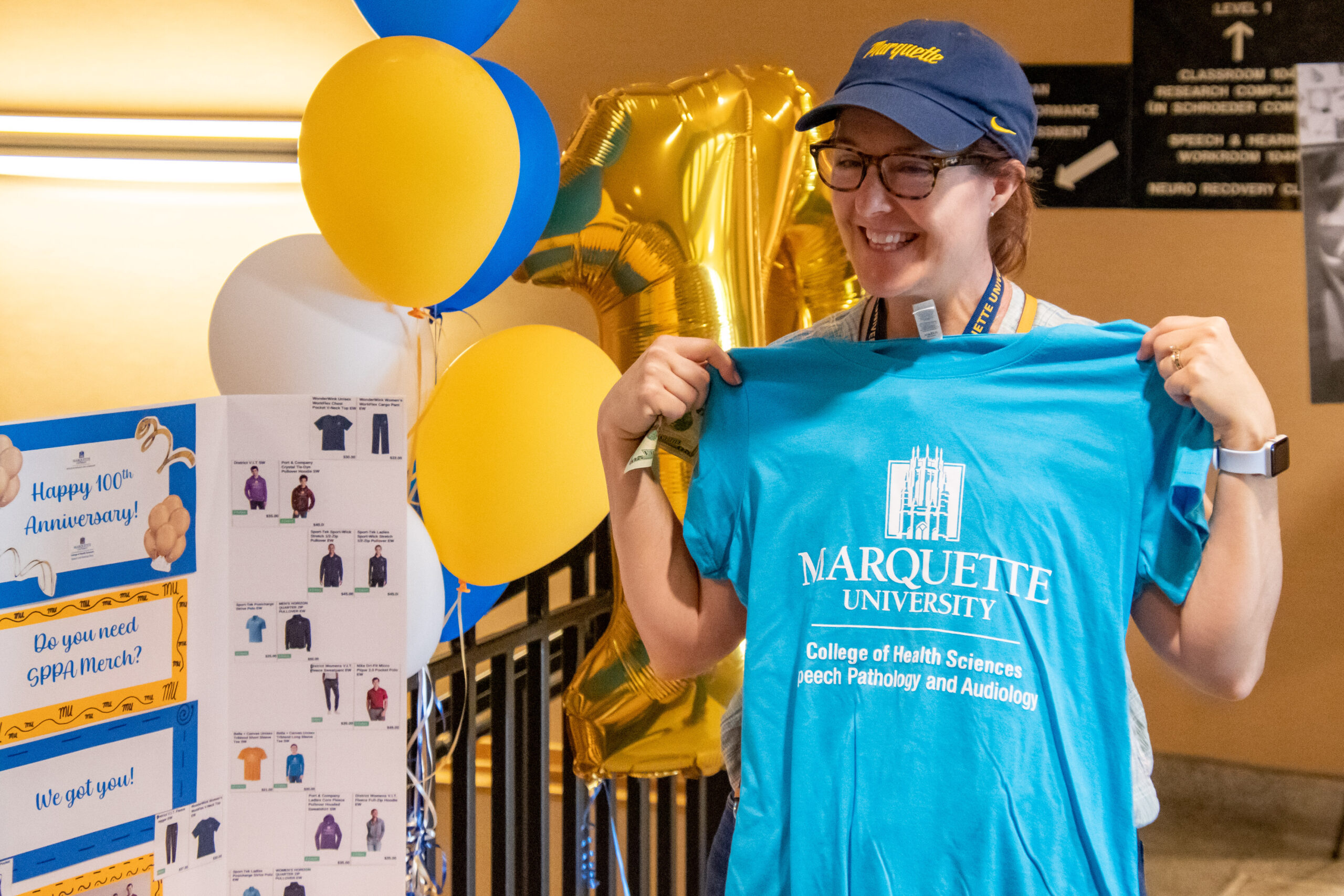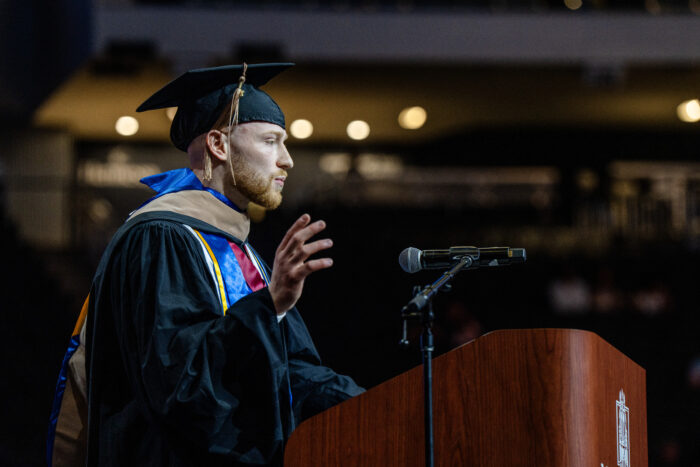On the second floor of Cramer Hall, an otherwise nondescript conference room serves as a nod to the past, a glimpse into the history of the College of Health Sciences’ Speech and Hearing Clinic. Dotted with relics of yesteryear from the Speech Pathology and Audiology Department, the room overlooks the former footprints of the John Plankinton Mansion and Monitor Hall.
The clinic, which is celebrating its 100th birthday, was founded by Marquette faculty member William R. Duffey in the Plankinton Mansion, which sat between Haggerty and Engineering halls. It later moved to Monitor Hall, its last home before taking residency in Cramer Hall where that conference room as museum stirs memories for many.
“I can still remember the rooms in Monitor Hall where I provided therapy as a student. I remember when supervisors stepped in during my sessions when I needed direction because I was unsure of what to do,” says Wendy Krueger, Comm ’92, director of clinical education in the Department of Speech Pathology and Audiology.
For the past century, the clinic has lived out its founder’s mission to meet the needs of the community. Today it is a premier resource for those seeking therapies to treat a host of communication disorders.
“True to Marquette’s service-oriented mission, the clinic flexes to meet the needs of the community and the client population,” says Dr. Emily Patterson, chair of the Department of Speech Pathology and Audiology, who calls the Speech and Hearing Clinic’s 100-year evolution “remarkable.”
“It’s truly special when you think about how the profession of speech pathology and audiology was not even formed when this clinic started in 1923,” Patterson adds. “It’s inspiring to me, and I hope to others, that whatever seeds we plant on campus, whatever ideas we nurture, can build and grow into something truly special 100 years later.”
When the clinic opened, professionals in the field were called speech teachers, not therapists or speech-language pathologists — they typically worked in schools, not clinics or hospitals.
“The field was initially focused primarily on speech sound or articulation disorders, which grew to include language disorders — but was still pediatric focused,” Krueger explains. “Now, in our clinic, we see clients of all ages — from 14 months old into their 90s, providing care for speech, voice, fluency, language, cognitive, social, and swallowing or feeding disorders.
The clinic consistently weaves in emerging therapies to fit its clients’ needs, meaning the next generation of clinicians is trained in administering the most current, evidence-based treatments for a particular disorder, building the foundation for lifelong practice.
Those who work in the clinic consider themselves a tight-knit family that spans generations, which is what makes the centennial so special to them. They had the opportunity earlier this month to celebrate the milestone with alumni.
“It was so heartwarming to hear alumni recalling specific experiences similar to mine,” says Krueger, whose career has come full circle since her days as a student in Monitor Hall. “Talking about the clinical faculty members that they worked with and how what they learned from them still holds impact now as practicing clinicians.”
Former Clinic Director Jackie Podewils says she was humbled by the chance to be such an influential part of the Speech and Hearing Clinic.
“I really tried to carry the torch and continue the legacy that was handed off to me,” Podewils says. “I’m so proud of the professionals I worked with and their commitment to bring new ideas and expertise to develop clinical programs to help people in need.”
Patterson says she enjoyed observing how excited alumni of all ages were to visit, walk the halls of Cramer Hall and celebrate the clinic’s milestone.
“Everybody who came back had such fond memories of their experience in the program and with working with clients in the clinic. That sense of pride, joy and fondness stands the test of time.”

